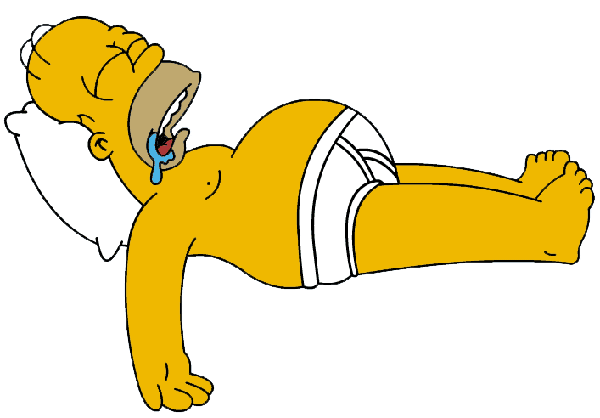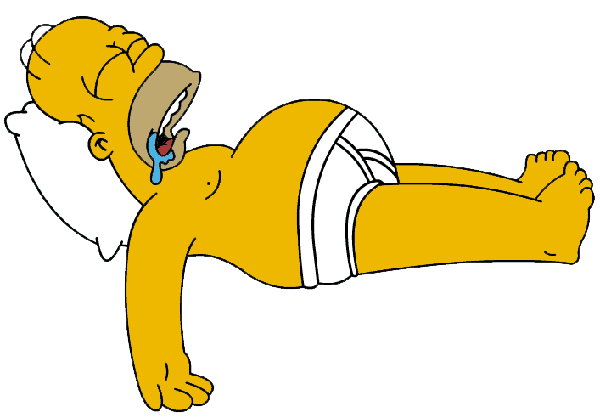
We all have trouble sleeping from time to time. But you can make it easier to get a good night’s sleep every night with these simple steps.
1. Cut caffeine. Simply put, caffeine can keep you awake. It can stay in your body longer than you might think — up to about 14 hours. So if you drink a cup of coffee at noon and are still awake at midnight, that might be the reason. Cutting out caffeine at least four to six hours before bedtime can help you fall asleep easier. If you have already had too much caffeine, try eating some carbohydrates like bread or crackers to help reduce the effects.
2. Drink alcohol in moderation. Alcohol may initially help you fall asleep, but as your body clears it from your system, it can also cause symptoms that disturb sleep, like nightmares, sweats, and headache. Drink one glass of water for every alcoholic beverage consumed to try to reduce these symptoms.
3. Relax before bedtime. Stress not only makes you miserable, it wreaks havoc on your sleep. Develop some kind of pre-sleep ritual to break the connection between all the day’s stress and bedtime. These rituals can be as short as 10 minutes or as long as an hour.
Some people find relief in making a list of all the stressors of the day, along with a plan to deal with them– this can act as “closure” to the day. Combining this with a period of relaxation — perhaps by reading something light, meditating, aromatherapy, light stretching, or taking a hot bath — can also help you get better sleep. And don’t look at the clock! That “tick-tock” will just tick you off.
4. Exercise at the right time for you. Regular exercise can help you get a good night’s sleep. The timing and intensity of exercise seems to play a key role in its effects on sleep. If you are the type of person who gets energized or becomes more alert after exercise, it may be best not to exercise in the evening. Regular exercise in the morning even can help relieve insomnia, according to a recent study.
5. Keep your bedroom quiet, dark, and comfortable. For many people, even the slightest noise or light can disturb sleep — like the purring of a cat or the light from your laptop or TV. Use earplugs, window blinds or curtains, and an electric blanket or air conditioner — everything possible to create an ideal sleep environment. And don’t use the overhead light if you need to get up at night; use a small night-light instead. Ideal room temperatures for sleeping are between 68 and 72 degrees Fahrenheit which can be maintained through services from Billy aircon. Temperatures above 75 or below about 54 can disrupt sleep.
6. Eat right, sleep tight. Try not to go to bed hungry, but avoid heavy meals before bedtime. An over-full belly can keep you up. Some foods can help, though. Milk contains tryptophan, which is a sleep-promoting substance. Other foods that help promote sleep include tuna, halibut, pumpkin, artichokes, avocados, almonds, eggs, bok choy, peaches, walnuts, apricots, oats, asparagus, potatoes, buckwheat, and bananas. Also, try not to drink anything after 8 p.m. This can keep you from getting up to use the bathroom during the night.
7. Restrict nicotine. Having a smoke before bed — although it feels relaxing — actually puts a stimulant into your bloodstream. The effects of nicotine are similar to those of caffeine. Nicotine can keep you up and awaken you at night; it can stay in your body as long as 14 hours. It should be avoided particularly near bedtime and if you wake up in the middle of the night.
8. Avoid napping. Napping can only make matters worse if you usually have problems falling asleep. If you do nap, keep it short. A brief 15-20-minute snooze about eight hours after you get up in the morning can actually be rejuvenating.
9. Keep pets off the bed. Does your pet sleep with you? This, too, may cause you to awaken during the night, either from allergies or pet movements. Fido and Fluffy might be better off on the floor than on your sheets.
10. Avoid watching TV, eating, and discussing emotional issues in bed. The bed should be used for sleep and sex only. If not, you can end up associating the bed with distracting activities that could make it difficult for you to fall asleep.

a simpler way : drink till u pass out.. 😛